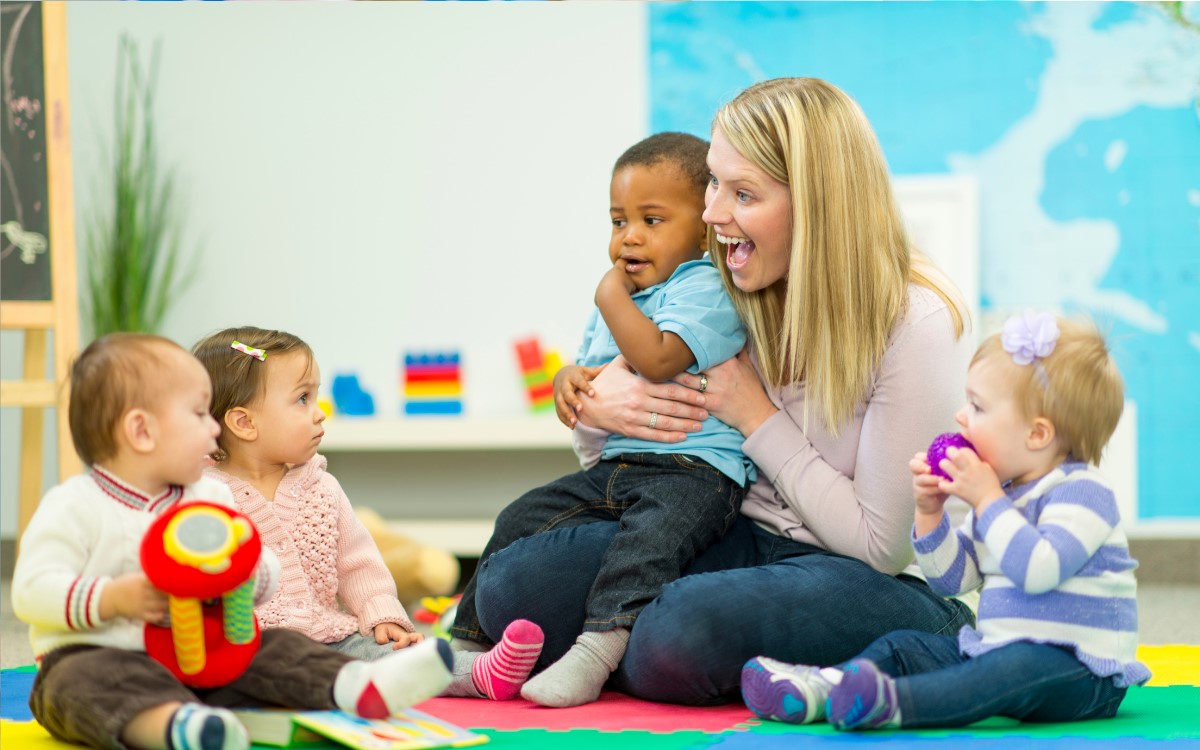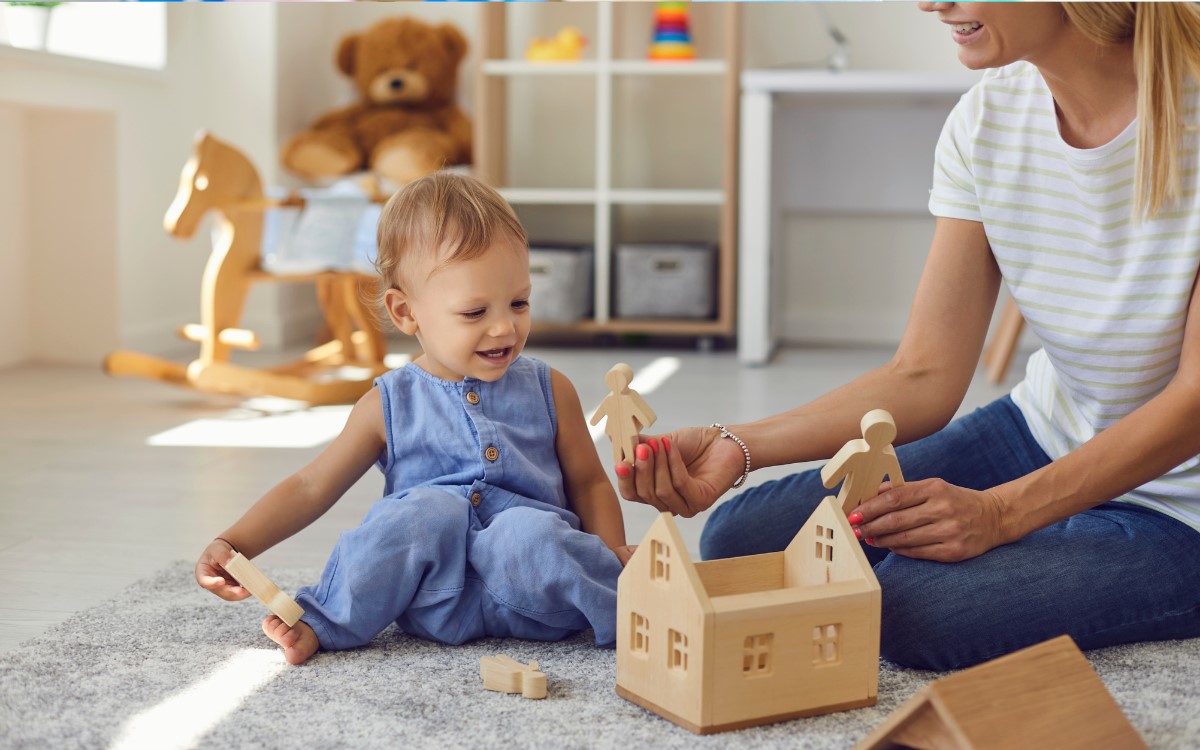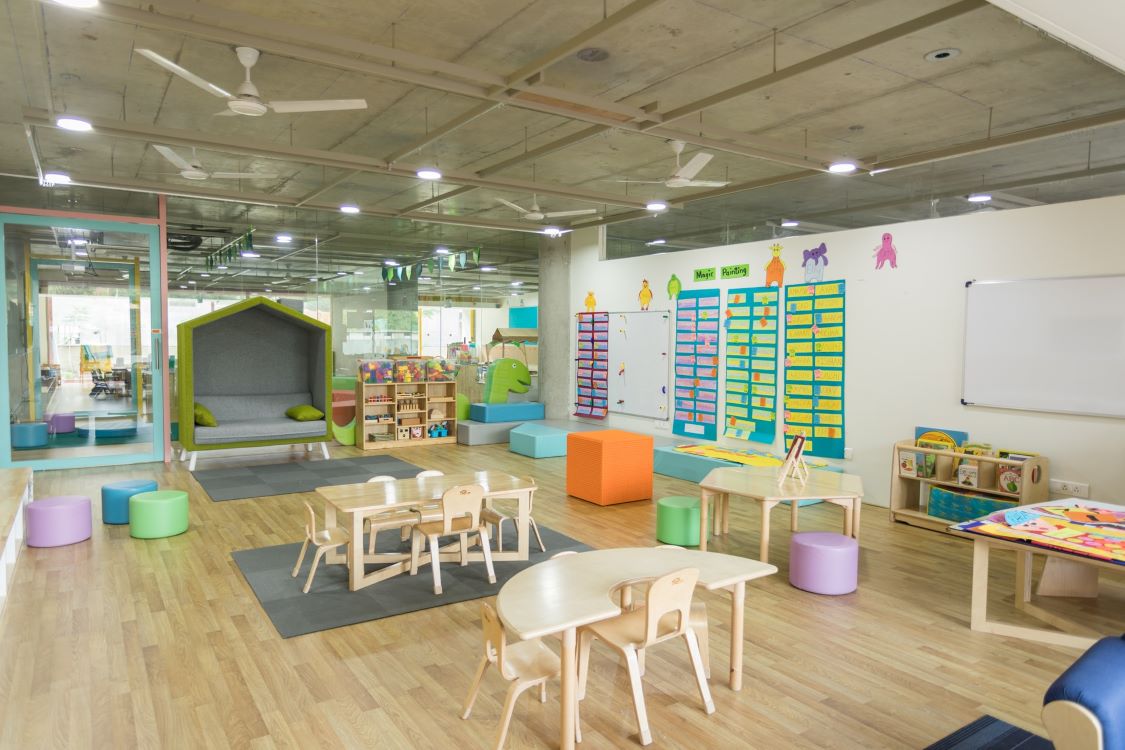Daycares are an important element in a toddler’s life, providing opportunities for them to play, learn, and socialize with others. That said, it needs to come at the right time in their lives. Figuring out when to start daycare for your kids is almost as important as being able to find quality daycare services altogether!
Research published by the Journal of Epidemiology and Community Health even shows that children who attend good quality daycare services are better behaved and better adjusted than those who do not.
Daycare puts your child on the spot in terms of social interaction. The recommended age to put them in daycare is when your child is at least a year old, though the real deciding factor is their developmental progress.
The best age to start daycare for your little one is when they’re ready, which can be as early as three months or as late as several years! The worst age to start daycare is when your child isn’t prepared, so consider their social, emotional, and physical capabilities before committing to daycare services.
Deciding to enroll your child daycare depend on a number of factors, but it is ultimately a personal choice, affected by your child’s personality, the availability and quality of facilities in your area, the length of your parental leave and your family’s own work and time schedule.
3 Risks of Starting Daycare Too Early

-
Poorer Parent-Child Attachment
Between 0 and 18 months of age, stability and continuity of care is of utmost importance to a child’s development. Very young children thrive on one-on-one attention from a single caregiver who is sensitive to their needs.
This highly sensitive one-on-one care gives children the chance to recognize their primary caregivers and form strong attachment bonds which allow a child to feel safe and protected around them.
Putting a child in daycare too early for too many hours may result in impaired or insecure parental-attachment bonds, due to the reduced amount of time the child is able to spend with his or her parent(s).
In a daycare center, a single caregiver will more than likely have multiple charges, and a child will see multiple caregivers in a day, disrupting care continuity and inhibiting a child’s ability to form attachment bonds to a single caregiver.
Insecure attachment is most often seen when a child is left in hospital care without parental interaction for days or weeks at a time. This is of course very different from a daycare set-up where a child returns to their parent’s care at the end of the day.
On its own, daycare is not the biggest indicator in the formation of parent-child attachment. Maternal sensitivity is a much larger factor in the formation of secure parent-child attachment.
Putting very young children in daycare is not necessarily harmful or disruptive to parent-child attachment. Studies show that daycare’s negative effects to parent-child attachment only arise when in conjunction with low parental sensitivity and poor quality of daycare services and in the context of long periods of non-parental care.
Daycare can work perfectly well for young children and toddlers, as long as there is a low carer to child ratio that allows for a more consistent set of caregivers who are more likely to gain sensitivity and respond quicker to their charge’s individual needs.
-
Increased Stress Levels
Studies involving children attending daycare services have shown that their cortisol or stress hormone levels rose significantly in the mid-afternoon, as compared to when the same children were at home.
The increase in cortisol levels were also shown to be most prominent in toddlers and babies under 3 years of age.
This pattern of elevated stress hormone was recorded even in children who had been attending daycare consistently for a period of time, indicating that the increased stress levels were not simply the result of an adjustment period to a new environment.
Cortisol or stress hormone levels in humans naturally fluctuate throughout the day. Levels are normally highest in the morning and lowest in the evening to aid in natural sleep-arousal patterns (waking up in the morning and falling asleep at night).
It has been hypothesized that the high levels of peer interaction in daycare settings leads to the increase in stress levels. Being in loud, highly stimulating environments for a stretch of time is stressful for adults, let alone children.
Stress should not be harmful to anyone in small doses. For children under 3, sticking to half days in daycare or breaking up long daycare hours with an at-home babysitter or nanny may be a better option.
Transitioning is also important. Integrating daycare into a child’s routine slowly and in the presence of a parent lowers the stress and atypical cortisol levels in toddlers. Strong attachment bonds with a parent are also important. Research has found that children who have secure attachment bonds to their mother also had lower stress levels at daycare.
-
Behavioral Issues and Aggression
An article from the Journal of Early Child Development and Care links entry into long hours of non-parental childcare before the first birthday with an increased incidence of poor social behavior, behavioral problems and aggression.
When familial influences were considered however, maternal sensitivity was still the biggest indicator of behavioral outcomes in children and offsets the potential negative effects of early childcare.
The quality of daycare services also matters. Children who receive high quality daycare services at any age have better pro-social behaviors and fewer instances of aggression, irregardless of the number of hours spent in daycare.
Things to Consider Before Putting Your Child (of any age) In Daycare

Deciding on when to start daycare for your child shouldn’t ever hinge on personal convenience. Your child will be ready for daycare when they’re ready – forcing the issue won’t just make things tough on your child but also for others in the daycare.
Your Child’s Readiness
The most important thing you need to consider is your child’s readiness to start daycare. Children need to have some level of independence going into daycare, including being able walk without assistance and engaging in play with other children.
Another indicator of your child’s readiness to start daycare is their ability to communicate their needs to caregivers, physically, emotionally, and perhaps verbally.
Most daycares will have schedules which indicate nap times, meals, and play times. Your child needs to be able to adjust to routine to be able to adjust to daycare, especially if they are used to eating whenever they want and napping as long as they want. Simple ways of helping your child adapt to routine include serving snacks or reading bedtime stories at the exact same time every day.
Length of Time in Daycare
Children, especially those under the age of 3 experience heightened stress levels during their time in daycare. Daycare can be an enriching experience for toddlers and young children, but extended periods in daycare could increase their stress levels.
Children who are shyer and more reserved are more likely to experience emotional stress when left at daycare. Using short durations to slowly transition your child into non-parental childcare may help decrease daycare stress levels.
To avoid these high stress levels, try to keep daycare hours to a minimum, especially for children under 3. If you know your child is prone to anxiety, try incorporating at-home childcare with a nanny or babysitter along with daycare. Once your child is older and more comfortable with daycare, you can increase their number of hours at daycare.
Quality of Daycare Services

According to one study, high quality daycare in early childhood not only improved children’s behavioral and social outcomes, it also improved academic performance all the way up to adolescence.
Aside from having adequate safety measures and childproofing, policies and licensed trained staff, try to look at factors which will affect your child’s emotional, social, and cognitive well-being.
A good daycare center should have a caring, sensitive environment with a low caregiver to child ratio to ensure that every child’s needs are met. This is especially important if your child is high needs or has specific medical or dietary requirements. For infants under 15 months old, there should be at least a 1:4 ratio of caregivers to infants.
A high quality daycare should also have a low caregiver turnover rate. Having the same caregiver every day gives children a sense of stability and permanence. Ideally, infants should have the same caregiver for at least a year in order for them to form attachment.
The Takeaway
There’s no one-size-fits-all answer about when to start daycare since it hinges a lot more on your little one’s maturity and capability. The best age to start daycare is when your kid is ready, with the worst age to start being when they aren’t. It’s honestly that simple, so be sure to consider your child’s situation carefully.
The effects of the quality and duration of non-parental childcare together are important. Using a high quality service as well as starting with shorter durations of daycare is important for minimizing stress and behavioral effects in young children. Being present with your child while they adapt to the daycare environment eases stress levels and improves secure attachment bonds between you and your child.
Whether or not your child thrives in daycare is also dependent on their emotional maturity. More outgoing and friendly children will have a better experience in daycare, while children who are quiet and prefer to keep to themselves may have a harder time adjusting to being in daycare.
Do not worry too much about the worst age to start daycare when going for non-parental child care. Focus your energy on helping your child while they transition into daycare and finding good quality daycare centers that will provide a healthy nurturing environment for your child at any age.